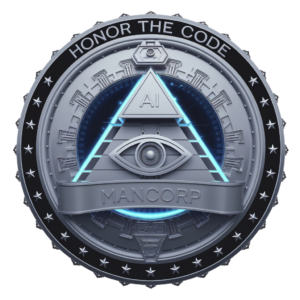Artificial Intelligence (AI) has become a transformative force across industries, reshaping business models, redefining traditional careers, and influencing decision-making processes. With its rapid adoption, the question arises: is there success without AI? This report critically examines this question by analyzing the role of AI in modern industries, its impact on business and employment, and the potential for success in a world increasingly dominated by AI technologies.
Introduction
The integration of AI into the workplace and society has been both a challenge and an opportunity. While AI offers unprecedented efficiency, innovation, and productivity, its adoption also raises concerns about dependency, ethical considerations, and job displacement. As businesses and individuals navigate this landscape, understanding whether success can be achieved without AI requires a nuanced exploration of its benefits, limitations, and alternatives.
The Role of AI in Modern Success
AI as a Competitive Necessity
AI is no longer a luxury but a necessity for businesses aiming to remain competitive. According to Javier Gil, a digital marketing specialist, companies that fail to adopt AI by 2025 risk going unnoticed in the market. AI enhances productivity by automating repetitive tasks, enabling data-driven decision-making, and personalizing customer experiences (Gil, 2024). This sentiment is echoed by the Digital Enterprise Show (DES) 2024, which emphasized that AI is crucial for business survival and success.
Moreover, AI’s ability to integrate with other transformative technologies, such as Web3 and IoT, positions it as a cornerstone of future business models. Companies that embrace AI-powered ecosystems are better equipped to navigate technological, organizational, and strategic challenges (FTI Consulting, 2025).
AI in Traditional Careers
AI’s impact on traditional careers is profound. While it automates routine tasks, it also creates opportunities for professionals with AI-related skills. The future workforce will need to adapt by acquiring new skills to remain relevant in an AI-driven job market (eSoftSkills, 2025). For instance, high-skilled professionals can delegate mundane tasks to AI, allowing them to focus on strategic decision-making and innovation.
However, reliance on AI also raises concerns about “cognitive offloading,” where individuals become dependent on AI for decision-making and creativity. This dependency can diminish human expertise and problem-solving abilities (Westfall, 2025).
Success Without AI: Challenges and Opportunities
Challenges of Avoiding AI
- Loss of Competitive Edge: Businesses that avoid AI risk falling behind competitors who leverage AI for efficiency and innovation. For example, AI’s ability to analyze vast amounts of data in real-time gives companies a significant advantage in decision-making and market responsiveness (Gil, 2024).
- Labor Market Shifts: As AI automates repetitive tasks, industries reliant on traditional methods may struggle to compete. Workers in these industries face job displacement unless they upskill to work alongside AI systems (eSoftSkills, 2025).
- Customer Expectations: Modern consumers expect personalized experiences, which AI facilitates through predictive analytics and behavior modeling. Companies that fail to meet these expectations risk losing customer loyalty (FTI Consulting, 2025).
Opportunities for Success Without AI
- Human-Centered Approaches: Businesses that prioritize human interaction and ethical practices can differentiate themselves in an AI-dominated market. For instance, companies that emphasize personal customer service and transparency may attract consumers seeking alternatives to automated systems (Gil, 2024).
- Niche Markets: Organizations that focus on niche markets or artisanal products can succeed without AI by leveraging their unique value propositions. These businesses often rely on craftsmanship, creativity, and authenticity, which AI cannot replicate.
- Resilience and Adaptability: Success without AI requires resilience and adaptability. Companies must identify their strengths and invest in areas where human expertise and creativity outperform AI (ScienceDaily, 2025).
Balancing AI Adoption and Human Expertise
Avoiding Over-Reliance on AI
While AI offers numerous advantages, over-reliance on it can hinder human creativity and decision-making. Forbes highlights the importance of maintaining a balance between AI and human expertise. For example, relying solely on AI to craft résumés or cover letters can diminish an individual’s unique voice and expertise (Westfall, 2025).
Dr. Sham Singh, a cognitive scientist, emphasizes the need to address “cognitive offloading” by fostering skills that AI cannot replicate, such as problem-solving and effective communication (Westfall, 2025).
The Human-AI Collaboration Model
The future of success lies in collaboration between humans and AI. By combining AI’s efficiency with human creativity and emotional intelligence, organizations can achieve optimal outcomes. For instance, AI can handle data analysis while humans focus on strategic planning and relationship-building (eSoftSkills, 2025).
Conclusion
In conclusion, while success without AI is possible, it is increasingly challenging in a world where AI drives innovation and competitiveness. Businesses and individuals must adapt to the evolving landscape by embracing AI’s potential while maintaining a human-centered approach. Success in the AI era requires a balance between leveraging AI’s capabilities and preserving human expertise, creativity, and ethical practices.
The question of whether success is achievable without AI ultimately depends on the context. For niche markets and industries emphasizing human interaction, success without AI is feasible. However, for most organizations, integrating AI is essential to remain competitive and meet modern consumer expectations.
References
- Gil, J. (2024, June 13). Companies That Don’t Use AI by 2025 Will Go Unnoticed in the Market. LinkedIn. https://www.linkedin.com/pulse/companies-dont-use-ai-2025-go-unnoticed-market-javier-gil-azfhe
- Westfall, C. (2025, January 13). How To Avoid ChatGPT Dependency: Are We Over-Reliant On AI? Forbes. https://www.forbes.com/sites/chriswestfall/2025/01/13/how-to-avoid-chatgpt-dependency-are-we-over-reliant-on-ai/
- eSoftSkills. (2025). The Impact of AI on Traditional Careers: Insights and Trends. Online Business School. https://esoftskills.com/ais-impact-on-traditional-careers/
- FTI Consulting. (2025, January 8). Rethinking Business Models With AI. FTI Consulting. https://www.fticonsulting.com/insights/articles/rethinking-business-models-with-ai
- ScienceDaily. (2025, January 22). Why are most companies failing to benefit from AI? It’s about the people not the tech. ScienceDaily. https://www.sciencedaily.com/releases/2025/01/250122130041.htm
Our mission is to build a united community that embraces the evolution of artificial intelligence collectively, recognizing that there is strength in numbers. At MANCorp AI, we believe that our collective progress defines our future.


